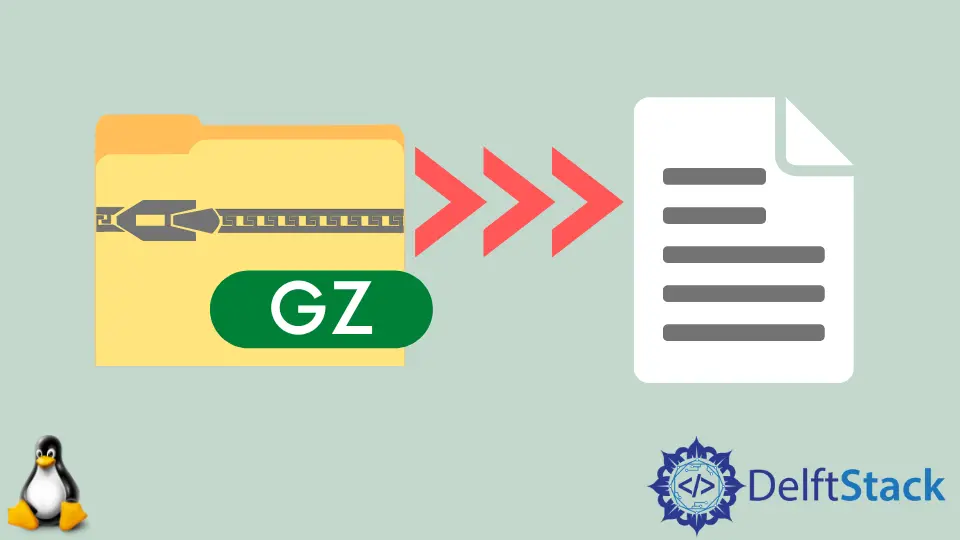How to Unzip .gz File in Linux
- Understanding Gzip and .gz Files
-
Using the
gunzipCommand -
Using the
gzipCommand - Using Tar with Gzip
- Conclusion
- FAQ

When working in Linux, you may encounter files with the .gz extension. These files are compressed using the Gzip compression algorithm, which is widely used due to its efficiency. Knowing how to unzip .gz files is essential for managing data effectively, especially if you’re dealing with large datasets or transferring files over the internet.
In this article, we’ll explore various commands and methods to compress and decompress .gz files in Linux, ensuring you have the tools you need for efficient file management. Whether you’re a beginner or an experienced user, this guide will provide you with valuable insights and practical examples to make your Linux experience smoother.
Understanding Gzip and .gz Files
Before diving into the commands, it’s essential to understand what Gzip is and how it works. Gzip is a file format and a software application used for file compression and decompression. The .gz file extension indicates that the file has been compressed using Gzip. This compression reduces the file size, which can save storage space and speed up data transfer.
To unzip a .gz file in Linux, you can use several command-line tools. While there are many methods available, we will focus on the most common and effective ways to handle .gz files using the terminal.
Using the gunzip Command
One of the simplest and most widely used commands for unzipping .gz files in Linux is gunzip. This command is specifically designed to decompress files compressed with Gzip. Here’s how to use it:
gunzip example.gz
After executing this command, the example.gz file will be decompressed, and you will find the original file named example in the same directory.
Output:
example
The gunzip command is straightforward and effective for users who want a quick solution for decompressing .gz files. It automatically deletes the original compressed file after extraction, which can be handy if you want to save space. However, if you prefer to keep the original .gz file, you can use the -k option:
gunzip -k example.gz
This command will decompress the file while retaining the original compressed version. The flexibility of gunzip makes it a popular choice among Linux users for handling .gz files.
Using the gzip Command
Interestingly, the gzip command itself can also be used for decompression. While it’s primarily known for compression, it has built-in functionality to decompress files as well. To unzip a .gz file using gzip, you can use the -d option:
gzip -d example.gz
This command performs the same function as gunzip and will decompress the example.gz file, leaving you with the original example file.
Output:
example
Using gzip -d is another effective method for decompressing .gz files. The advantage of this approach is that it consolidates both compression and decompression into a single command, making it easier to remember for users who frequently work with Gzip files. Like gunzip, the gzip -d command will delete the original .gz file after decompression unless specified otherwise with the -k option.
Using Tar with Gzip
Sometimes, .gz files are found within tar archives, commonly known as .tar.gz files. In such cases, you can use the tar command to extract the contents of the archive, which includes the Gzip compression. Here’s how to do it:
tar -xzvf example.tar.gz
In this command:
xstands for extract.zindicates that the archive is compressed with Gzip.vmeans verbose, which will list the files being extracted.fspecifies that you are working with a file.
Output:
example/
example/file1.txt
example/file2.txt
Using tar with Gzip is particularly useful when dealing with multiple files or directories. It allows you to compress and decompress entire directories in one go, making file management much more efficient. This method is especially popular in software distribution, where multiple files and folders are often bundled together.
Conclusion
Unzipping .gz files in Linux is a fundamental skill that can significantly enhance your file management capabilities. Whether you choose to use gunzip, gzip, or the tar command, each method provides a reliable way to decompress files. Understanding these commands will not only save you time but also make your Linux experience more productive. So, the next time you encounter a .gz file, you’ll be well-equipped to handle it with confidence.
FAQ
- What is a .gz file?
A .gz file is a compressed file format created using the Gzip compression algorithm, which reduces file size for easier storage and transfer.
-
Can I decompress a .gz file without deleting the original?
Yes, you can use the-koption withgunziporgzipcommands to keep the original .gz file after decompression. -
What if my .gz file is part of a tar archive?
You can use thetar -xzvfcommand to extract files from a .tar.gz archive, which combines both tar and Gzip compression. -
Are there graphical tools available for unzipping .gz files?
Yes, many Linux distributions come with graphical file managers that can decompress .gz files with a simple right-click and selection of the extract option. -
Is Gzip the only compression method available in Linux?
No, Linux supports various compression methods, including bzip2, xz, and zip, each with its own advantages and use cases.